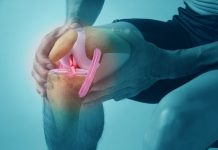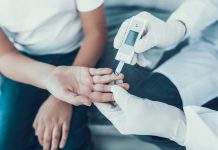The University of Liverpool is leading a £2.7 million clinical trial to investigate vagus nerve stimulation as a treatment for people with drug-resistant epilepsy
The University of Liverpool is spearheading a groundbreaking £2.7 million clinical trial, funded by the NIHR and MRC, to investigate whether vagus nerve stimulation (VNS) can offer a safe and effective treatment for people living with drug-resistant epilepsy. This significant funding underscores the importance and credibility of the research. The trial aims to assess whether this minimally invasive technique can reduce seizure frequency and improve quality of life for patients who have not responded to conventional medications.
Pioneered by a leading expert in epilepsy research
Epilepsy affects over 600,000 people in the UK, and for around a third of these individuals, medication is ineffective, leading to drug-resistant epilepsy. Brain surgery is an option, but it is only suitable for a limited number of people.
The seven-year project, Vagus Nerve Stimulation for epilepsy in children and adults: Assessment of Longer term clinical and cost Effectiveness in a Randomised controlled Trial (VNS-ALERT), is led by Professor Tony Marson, a leading expert in epilepsy at the University of Liverpool. The title reflects the trial’s focus on assessing the long-term clinical and cost effectiveness of VNS as a treatment for drug-resistant epilepsy in both children and adults.
Vagus nerve stimulation involves a small, implanted device, similar to a pacemaker, that sends electrical impulses to the brain via the vagus nerve. This device, approved for use in the NHS, offers an alternative for individuals who are unable to undergo surgery. Its long-term clinical and cost effectiveness remains uncertain, particularly for children and individuals with intellectual disabilities, which is why this trial is so important.
Professor Marson said: “This landmark trial will provide much-needed evidence on whether VNS is a truly effective and cost-efficient treatment for people living with drug-resistant epilepsy. Crucially, we are including children and adults with intellectual disabilities—groups historically underrepresented in epilepsy research.”
Monitoring the number of seizure-free days
The trial will recruit 300 participants aged five and above from epilepsy surgery centres across the UK. Participants will be randomly assigned to the vagus nerve stimulation treatment immediately, after six months, or after 12 months. The primary outcome of the trial is monitoring the number of seizure-free days experienced by participants, with other outcomes including quality of life, seizure severity, adverse effects, mortality, and cost-effectiveness, which are closely followed.
Professor Carrol Gamble said: “We are excited to be collaborating with Professor Marson on this research, which allows us to contribute our extensive expertise in neurological trials in adults and children. We look forward to answering this important clinical question to benefit patients and their families.”
Patient and public involvement has been key to shaping the epilepsy trial. The study was co-designed by a public contributor with lived experience, who played a crucial role in shaping the trial’s design and objectives. Their input, along with feedback from the Epilepsy Research Institute and Shape Network, directly influenced decisions, such as using a staggered activation model to ensure that all participants receive a vagus nerve stimulation device. Ongoing involvement includes advisory roles, participation in the steering committee, and a qualitative sub-study exploring patient experiences to ensure the trial remains inclusive and responsive.
The trial will be delivered by the Liverpool Clinical Trials Centre, and other collaborators include the Walton Centre NHS Foundation Trust, North Bristol NHS Trust, Bangor University, University Hospital of Wales, the University of Plymouth, Oxford University Hospitals NHS Foundation Trust, the University of Sheffield, and Newcastle University. This collaborative effort ensures a comprehensive approach to the research, instilling confidence in the trial’s outcomes.








